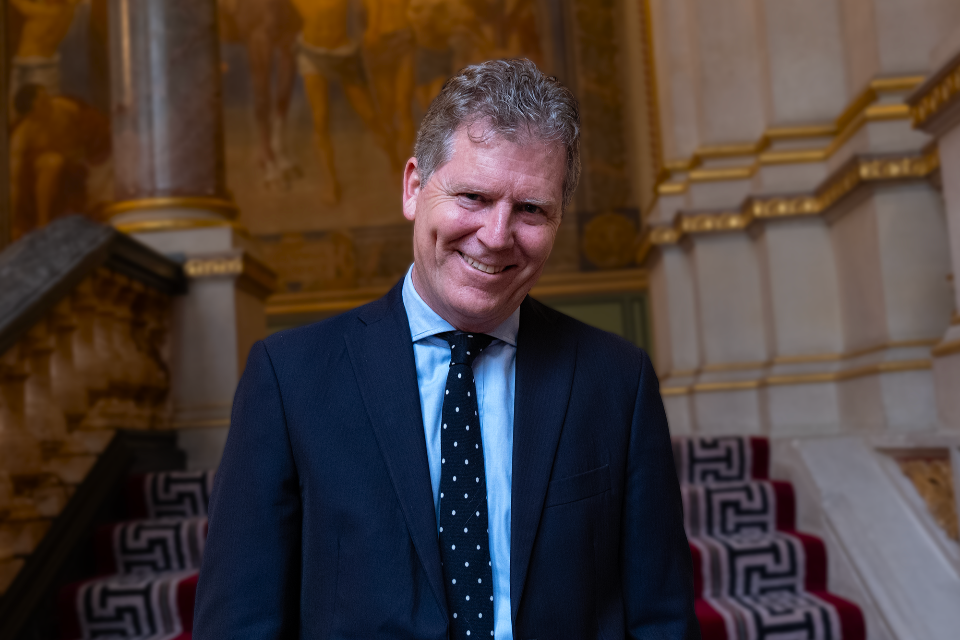- Trade Secretary Kemi Badenoch flies to Abu Dhabi for 13th WTO conference to meet international counterparts and defend free trade
- UK using negotiations to maintain tariff-free digital trade, and protect British businesses from potential costly increases in global trade barriers and protectionism
- Secretary Badenoch joined by Trade Minister Greg Hands – as both will use event to meet Gulf Ministers and progress talks on a UK-Gulf trade deal
Trade Secretary Kemi Badenoch today arrives in Abu Dhabi to defend free and fair trade and protect UK businesses from increasing global trade barriers.
She is attending the World Trade Organization’s (WTO) Thirteenth Ministerial Conference (MC13) – where over 150 of the world’s trade ministers will gather for a week to negotiate global rules of trade that affect tariffs, regulations and how businesses sell their goods and services abroad.
Attending the Conference, Trade Secretary Kemi Badenoch said:
Free trade creates jobs, opportunities for businesses, and puts money in people’s pockets.
We want to see more barriers torn down, not new ones being put up. This is why it’s important the UK is here at MC13, to secure meaningful outcomes for companies and consumers back home and around the world as part of the Government’s plan to grow the economy and boost opportunities for our young people. I look forward to working with Members this week to make that happen.
The WTO sets the rules that underpin free and fair trade and has helped trade to boom around the world. Over the period 2000 to 2016, the average WTO member saw trade costs fall equivalent to a 15% reduction in tariffs.
Agreements through the WTO can help to address barriers to trade and reduce costs – savings that can be passed on to businesses and consumers – and decide to what extent countries can subsidise their industries.
The UK will be heavily involved in negotiations, and wants to see MC13 agree to:
- Keep the costs of online trade down by extending the e-commerce moratorium, a global agreement that avoids taxes on online transactions – from e-mails to music or TV downloads,
- Ensure countries can defend themselves against unfair trading practices by other countries by helping to restore the WTO’s dispute settlement mechanism,
- Protect our oceans and fish stocks which so many vulnerable fishing communities depend on by ending subsidies for fleets that catch fish in unsustainable numbers,
- Help developing countries to benefit from free trade and global investment by securing agreements such as the Investment Facilitation for Development Agreement which will help grow developing economies by creating a more transparent, efficient, and predictable climate for investment.
Trade Policy Minister Greg Hands said:
From preventing digital products like emails being taxed, to ensuring countries can challenge unfair trading practices, the UK joins this conference with a clear mission: to be the world’s leading voice for Free Trade.
It’s good to be back at the Ministerial Conference of the WTO, alongside the Trade Secretary, to help drive negotiations and secure the right outcomes for businesses and consumers around the world and in the UK.
Free trade has played a vital role in lifting more than a billion people out of extreme poverty globally since 1990, which is why development is at the heart of the UK’s trade and investment policy.
The UK leads the way in championing the needs of least developed countries and has played an active role in negotiations on the Investment Facilitation for Development Agreement (IFDA). This agreement streamlines burdensome processes for potential investors and improves transparency, which is set to benefit developing countries the most.
An additional 1 million Swiss Francs of funding will be made to the WTO’s Enhanced Integrated Framework, the only fund exclusively dedicated to helping Least Developed Countries trade. The UK has been the second largest donor to the Fund, contributing nearly $35m across two decades.
Minister for Development Andrew Mitchell said:
Trade is a proven route to prosperity. That is why the UK is pushing robustly for outcomes at the WTO’s MC13 in Abu Dhabi that support developing countries to reap the benefits of free trade and global investment.
We are proud to have introduced the Developing Country Trading Scheme – one of the most generous schemes available to developing countries. This conference is an opportunity to further improve the global trading system to ensure all countries benefit from the transformational impact of trade and no one is left behind.
Following the recent conclusion of the sixth round of talks on a UK-Gulf Cooperation Council (GCC) Free Trade Agreement, UK ministers will also meet with all six GCC counterparts to progress the deal – the first time Kemi Badenoch has met all six Ministers at once.
A deal would help unlock even more opportunities for investment and exports between the UK and countries of the GCC. With at least £19 billion already invested in each other’s economies and total trade worth £59 billion, both sides are building on a strong foundation.
UK Ministers will also meet with representatives from the Comprehensive and Progressive Agreement for Trans-Pacific Partnership (CPTPP) member countries at the Conference ahead of the UK’s ratification and entry into force of the agreement expected later this year. The UK’s inclusion will make the CPTPP a truly global deal.









